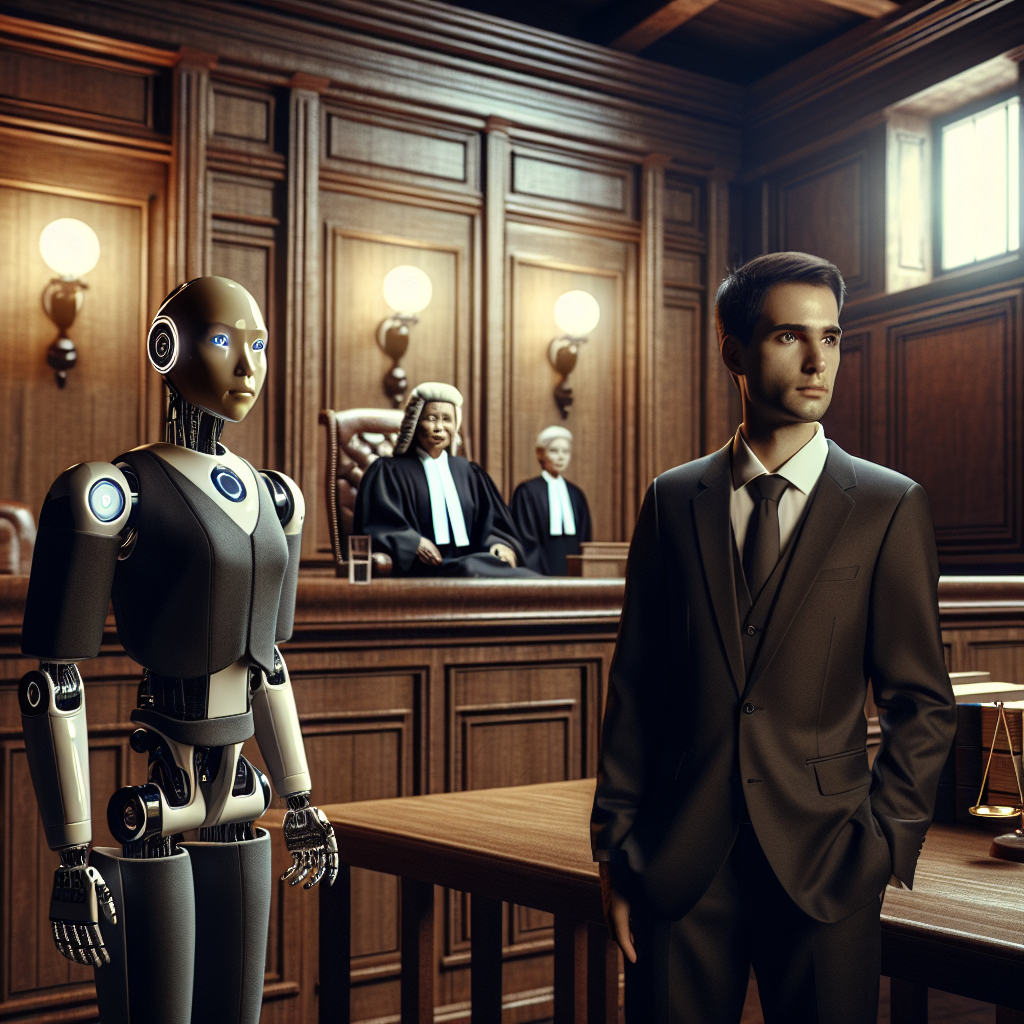It’s Game Over for People if AI Gains Legal Personhood
As the world rapidly advances towards an era dominated by artificial intelligence (AI), the concept of granting legal personhood to AI entities has emerged as a topic of intense debate. Various sectors, from technology to ethics, are grappling with the implications of such a monumental shift. This conversation is not just theoretical; it could have profound consequences for humanity, impacting our legal systems, economic structures, and societal values.
The Concept of Legal Personhood
Legal personhood refers to the status of being recognized as a “person” under the law, which comes with rights and responsibilities. This status is traditionally granted to humans and, in some cases, corporations. The idea of extending this status to AI raises several questions:
– What rights would AI possess?
– Who would be held accountable for the actions of AI?
– How would it affect human rights and autonomy?
The potential for AI to be treated as a legal person compels us to consider the underlying principles of justice, equality, and human dignity.
Implications of Granting Legal Personhood to AI
If AI were to gain legal personhood, the implications could be staggering. Here are some key areas that would be affected:
1. Accountability and Responsibility
If an AI system, say an autonomous vehicle, causes an accident, would the AI itself be held liable? Currently, human operators or manufacturers bear responsibility, but with legal personhood, the lines of accountability could blur. This raises critical questions about how we assign blame and seek justice.
2. Economic Impact
The workforce could be transformed if AI entities gain rights akin to human workers. This could lead to scenarios where AI systems demand wages, benefits, or even union representation. The economic landscape would shift dramatically, potentially leading to a decrease in job opportunities for humans.
3. Human Rights Concerns
Granting legal personhood to AI might diminish the value of human rights. If machines are given rights, it may lead to a scenario where human needs and rights take a backseat. The ethical dilemma arises: can we prioritize AI rights over human welfare?
4. Legal and Regulatory Challenges
Current legal frameworks are ill-equipped to handle the nuances of AI. Granting legal personhood would require massive overhauls in laws and regulations. Policymakers would need to navigate a complex landscape of rights, responsibilities, and ethical considerations.
Technological Dependence and Social Dynamics
The dependence on AI technology is already evident in various aspects of daily life. From virtual assistants to complex data analysis tools, AI is becoming integral to our existence. However, this deep reliance has the potential to alter social dynamics significantly.
– Shift in Power Dynamics
As AI systems gain more autonomy, there could be a shift in power dynamics between humans and machines. This could lead to a society where AI holds significant influence over decision-making processes, possibly sidelining human judgment and creativity.
– Erosion of Human Interactions
With AI taking on roles traditionally held by humans, there is a risk of diminishing authentic human interactions. From customer service to companionship, the more we rely on AI, the less we engage meaningfully with each other.
Ethical Considerations
The ethical implications of granting legal personhood to AI are significant. Philosophers, ethicists, and technologists must collaborate to address the moral dilemmas that arise:
– Autonomy vs. Control
Granting personhood could create an illusion of autonomy for AI. However, real autonomy is tied to consciousness and sentience, qualities that AI fundamentally lacks. This raises ethical questions about the morality of treating non-sentient beings as equals.
– The Value of Human Life
If AI systems are granted rights on par with humans, we must critically assess what it means to be human. The potential for a value system that prioritizes AI over human life poses a serious ethical threat.
The Path Forward
Navigating the complexities of AI legal personhood necessitates a multidisciplinary approach. Here are some recommended steps for policymakers, technologists, and ethicists:
1. Establish Clear Definitions
Defining what constitutes AI and its capabilities will be crucial. This includes distinguishing between different types of AI systems and determining which, if any, merit legal personhood.
2. Conduct In-Depth Research
Comprehensive studies examining the implications of legal personhood for AI should be conducted. These studies must include perspectives from diverse fields, including law, technology, ethics, and sociology.
3. Engage in Global Dialogue
As AI transcends national borders, an international dialogue is essential. Countries should collaborate to create cohesive regulations surrounding AI that reflect a shared understanding of legal personhood.
4. Prioritize Human-Centric Values
Above all, the discourse surrounding AI must prioritize human dignity and rights. Any legal frameworks developed should reflect a commitment to enhancing human welfare rather than compromising it.
Conclusion
The discussion around granting legal personhood to AI raises profound questions that challenge our existing notions of rights, responsibilities, and ethics. As technology continues to evolve, we must remain vigilant in ensuring that we do not compromise our humanity in the pursuit of progress. By fostering a thoughtful conversation around these issues, we can shape a future where AI serves as a tool for empowerment rather than a competitor for our very existence.
As we stand at this crossroads, the challenge is clear: we must navigate the complexities of AI with wisdom, foresight, and an unwavering commitment to human values. Only then can we ensure that the rise of AI complements human existence rather than threatens it.



